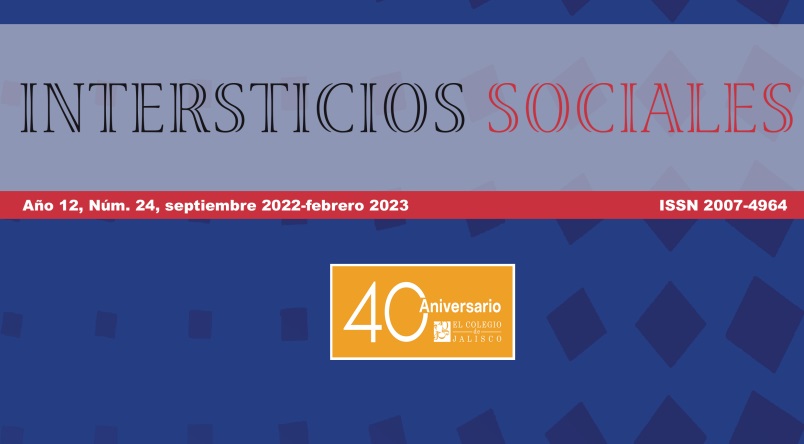Approach to an intercultural constitutional economic model. Notes on the fourth transformation in indigenous municipalities of Chiapas
DOI:
https://doi.org/10.55555/IS.24.424Keywords:
interculturality, municipal law, cultural diversity, economic lawAbstract
Mexico’s national economic model must include a principle that obliges the state to take indigenous municipalities into account in national planning in order to avoid situations that negatively impact the lives of their inhabitants, such as increases in public municipal government debt, while simultaneously guaranteeing access to a dignified life and the maximum enjoyment of their human rights. To justify this, we analyze the context of the indigenous municipalities of the state of Chiapas and the challenges that arise from the economic model. Finally, we propose promoting the participation of indigenous peoples and communities in economic decision-making through an intercultural constitutional economic model.References
Boaventura de Sousa Santos, La Reinvención del Estado y el Estado Plurinacional, (Bolivia: CENDA, 2007), 18 – 19
Boaventura de Sousa Santos, Refundación del Estado en América Latina Perspectiva desde una epistemología del sur, (Bogotá: Siglo del Hombre, 2010), 98
María de Lourdes Casillas y Laura Santini, Universidad Intercultural Modelo Educativo, (México: SEP, 2009), 34 – 42
Carlos Hurtado, Deuda subnacional: Un análisis del caso mexicano, (México: Fundación de Estudios Financieros-FUNDEF, 2013), 131-135
CGEIB, Coordinación General de Educación Intercultural y Bilingüe, SEP, Reflexiones de Raúl Fornet-Betancourt Sobre el Concepto de Interculturalidad, (México: SEP, 2008), 82.
Constitución Política del Estado Libre y Soberano de Chiapas
Gunther Dietz, “Interculturalidad: una aproximación antropológica”, Perfiles educativos 156 ( 2017): 192-207.
Erika Romero Diaz, Educacion Intercultural en México, un analisis de los discursos nacionales e internacionales en su impacto en los modelos educativos mexicanos (México: Coordinacion de educacion intercultural y bilingüe, 2011), 506
Jorge Witker, Introducción al Derecho Económico (México: Grupo Editorial HESS, 2012), 79-91.
José Bastiani, “Fronteras lingüísticas: una aproximación al estudio de las lenguas indígenas” en Lengua, interculturalidad e identidad , coord.. Toni Vila (Girona: Universidad de Girona - Documenta Universitaria, 2007), 29 -37
León Ávila, “La agroecología en resistencia: Poder, autonomía y diálogo en la formación de promotores comunitarios en el noreste de Chiapas”, Argumentos 41, (abril de 2002): 59 -90
Ley de Derechos y Cultura Indígenas del Estado de Chiapas
Macario Schettino, “La peor crisis dicen”, El financiero, (21/09/2016)
Marcelo Fernández Osco, Pluriversidad: rostros de; la interculturalidad (La Paz: COOPI, 2009), 41
Marcos Kaplan, Revolución Tecnologica, Estado y Derecho, Tomo III, (México: UNAM-Pemex, 1994), 25-28
María Teresa Sierra, “Las mujeres indígenas ante la justicia comunitaria. Perspectivas desde la interculturalidad y los derechos”, Desacatos 31(septiembre-diciembre de 2009): 73-88
PE, Parlamento Europeo, Propuesta de resolución sobre el papel del diálogo intercultural, la diversidad cultural y la educación en la promoción de los valores fundamentales, (Bruselas, PE, 2015), 5-7
Porrúa, Constitución Política de los Estados Unidos Mexicanos COMENTADA. Tomo I. (México: UNAM-Porrúa, 1998), 321.
Thomas Piketty, Capital e ideología, (Madrid: Deusto S.A. Ediciones, 2019), 29-45

Published
How to Cite
Issue
Section
License
Copyright (c) 2022 Intersticios Sociales

This work is licensed under a Creative Commons Attribution-NonCommercial-ShareAlike 4.0 International License.
Copyright notice
Once a work has been approved for publication in Intersticios Sociales, each author must sign the corresponding transfer of patrimonial rights on the form approved by the journal.
Each author retains the moral rights to her/his work, and the transfer of rights described above is exclusively for academic –not lucrative– purposes, by Intersticios Sociales and El Colegio de Jalisco.











